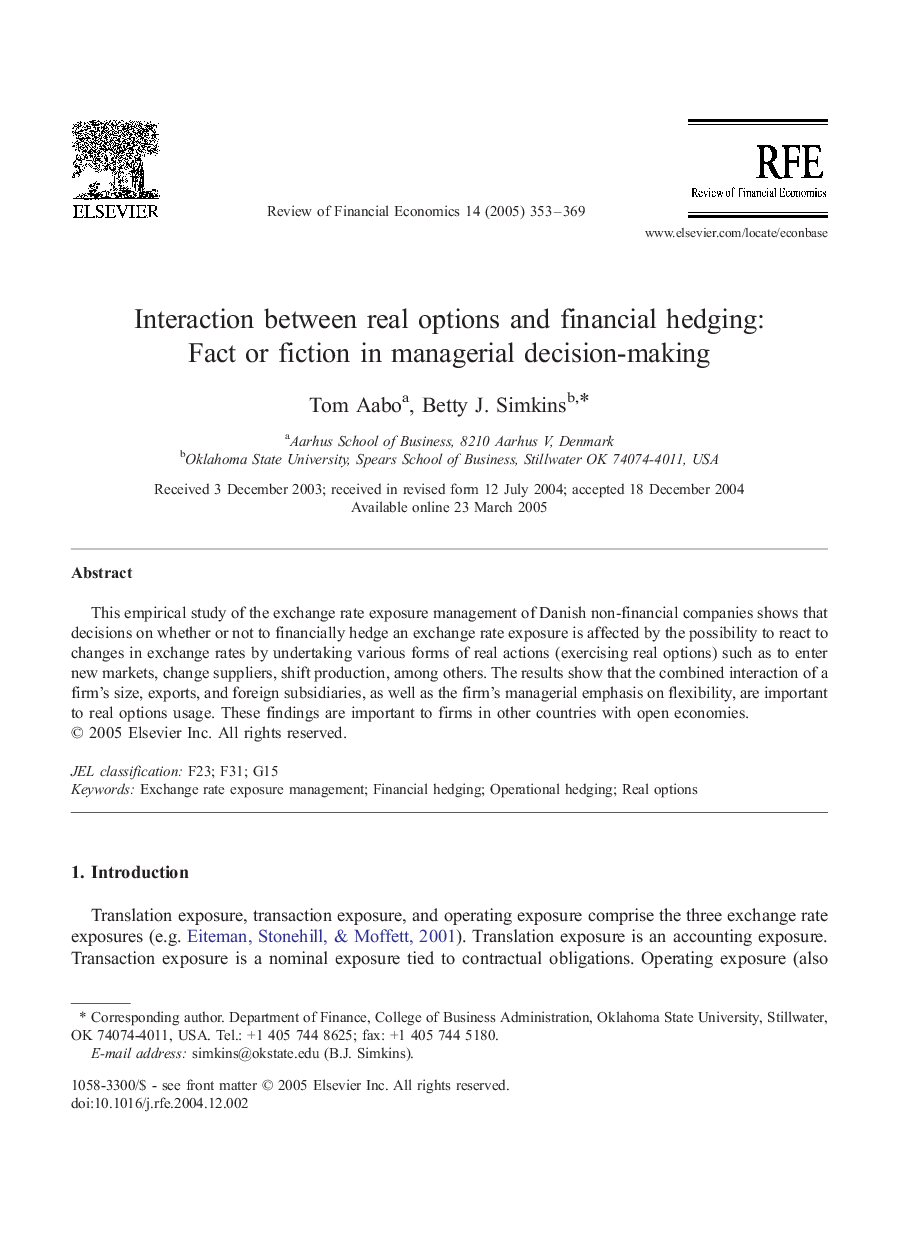| Article ID | Journal | Published Year | Pages | File Type |
|---|---|---|---|---|
| 9732235 | Review of Financial Economics | 2005 | 17 Pages |
Abstract
This empirical study of the exchange rate exposure management of Danish non-financial companies shows that decisions on whether or not to financially hedge an exchange rate exposure is affected by the possibility to react to changes in exchange rates by undertaking various forms of real actions (exercising real options) such as to enter new markets, change suppliers, shift production, among others. The results show that the combined interaction of a firm's size, exports, and foreign subsidiaries, as well as the firm's managerial emphasis on flexibility, are important to real options usage. These findings are important to firms in other countries with open economies.
Related Topics
Social Sciences and Humanities
Economics, Econometrics and Finance
Economics and Econometrics
Authors
Tom Aabo, Betty J. Simkins,
